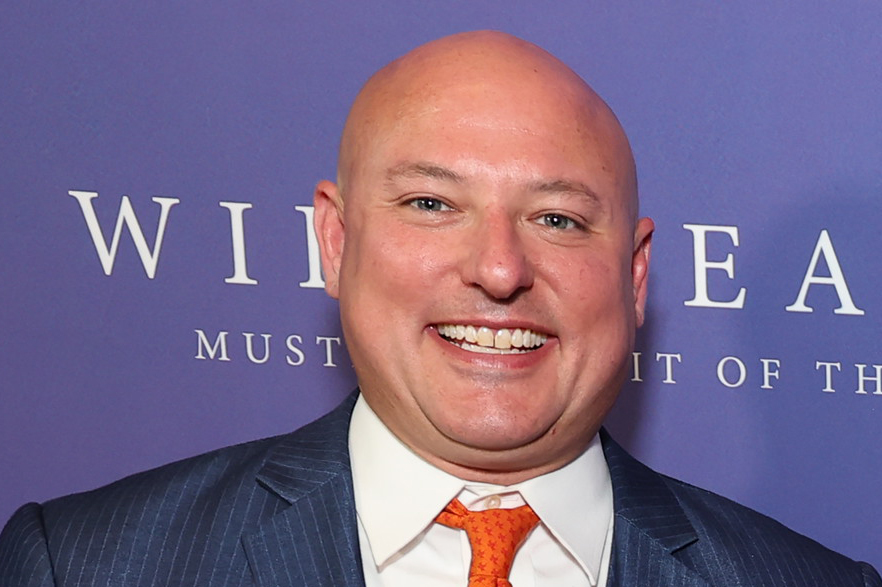When I was in high school, I worked at an ice rink in the winter and a swimming pool in the summer. My friends toiled at Target and gofered at golf courses, making minimum wage and spending it on gas and low-rise jeans from Abercrombie: it was 2008, after all. These days, gas may still cost $4 per gallon, but now the jeans are high-waisted and the teens are more ambitious.
My youngest brother Ted is 18. He spent the summer before his first year in college working in a cheese shop, sweeping floors and straining ricotta: a classic summer job, tedious and stress-free. Yet some of his friends are taking a different route. Ted’s buddy Tom just cashed out $3,000 in bitcoin winnings to buy a weeklong Airbnb in Ocean City, Maryland for all his friends.
Tom’s current cryptocurrency holdings roughly equal my starting salary at a New York publisher in 2013. Shortly after his 18th birthday, he tells me, Tom started watching TikToks about investment strategies. ‘You see videos where people are like, “Hey, you should buy this,” and I’m thinking, “Why not? I have nothing else to spend my money on.” He had a typical part-time job, stocking shelves at a grocery store, but the pandemic had closed movie theaters and diners, canceled extracurricular activities and discouraged dating. So he spent it on crypto.
The entrepreneurial spirit of Generation Z, the oldest of whom are in their early 20s, has become notorious. More than half say they want to start their own business. One in four say they already have.
What kind of businesses? Think less The Social Network and more The Big Short. The TikTok subculture that inspired Tom, known as TraderTok or StockTok, is often cited as a culprit in the Gen Z investment craze. #StockTok — a hashtag that has racked up 1.6 billion views — seems mostly to consist of ads for day-trading platforms, obscure beefs between influencers and 30-second clips set to hiphop with titles like ‘It’s Roth O’Clock Time!’ TikTok issues a disclaimer before the videos: ‘Consider doing your own research.’
‘Meme stocks’ like GameStop and AMC infamously gathered steam on the Reddit forum r/wallstreetbets. Young investors ignored the advice of seasoned hedge-funders, resulting in incredible gains or great losses. The aspiring rich have been taking weird advice at least since Napoleon Hill taught that giving up masturbation is the key to building wealth, so perhaps these quirky forums shouldn’t surprise.
But if you want to be really disturbed by what the teens are up to, check out TikTok’s #sidehustle hashtag (7.2 billion views and counting). Some videos overlap with StockTok — call it an introduction to compound interest – but many are even more deranged. You can publish your diary on Medium and get ‘$0-$100’ per day. (Wait until they hear about journalism!) Teens can cultivate hobbies — their gaming skills and outdoor recreation, their handwriting — to create digital brands and even secure sponsorships. And that’s not to mention the DIY porn platform OnlyFans, which attracts ‘content creators’ 18 and older.
Another popular side hustle is drop-shipping: e-commerce that involves shipping products directly from a manufacturer to a customer. Since drop-shipping doesn’t require a retailer to stock any inventory, it’s ideal for teens. It’s also fairly seedy. The e-commerce platform Shopify recommends perusing resale products on AliExpress, an arm of the Chinese tech giant Alibaba. A homebound teen can make the pocket money they need for crypto and meme stocks by reselling iPhone chargers with no more overhead than the cost of a few Instagram ads. Sure, these products may have been created by child labor, and Alibaba is controlled by the CCP, but it pays better than working at an ice cream parlor.
Entrepreneurial youths have always babysat, mowed lawns and started lemonade stands. But these pursuits feel different than the bootstrapping youngsters of yore, perhaps because the goal of long-term financial independence is so often explicit. ‘When I’m old, I want to have enough money to retire,’ our friend Tom the teen crypto investor says. ‘Or maybe to buy a house.’ I’m a millennial and I assume I’ll never be able to retire or buy a house, so his optimism fascinated me at first. But I wonder whether it’s really optimism I’m sensing.
For my generation, traditional avenues for success like the four-year college degree, often ended in debt and uncertainty. Meanwhile, Social Security dries up and 401(k)s are replaced by the dubious benefits of the gig economy. I don’t blame our younger siblings for seeking an end run around disappointment. Perhaps all these side hustles are motivated less by ambition or love of ‘the grind’ than by distrust, anxiety and fear of being left with nothing.
A college friend of mine is a teacher at a racially diverse, mixed-income public school in Denver. His more affluent students generally want to go to universities and become professionals, like he and I did, but he observes a difference with low-income students: ‘They’re somewhat less likely than they used to be to see college as a path upward.’ They prefer certification programs in medical fields and — you guessed it — business courses. Entrepreneurship and industry certifications ‘seem to promise self-sufficiency’, he says, and possibly even protection against the vicissitudes of life in America. I’m rooting for them: it’s Roth O’Clock somewhere.
This article was originally published in The Spectator’s October 2021 World edition.

























